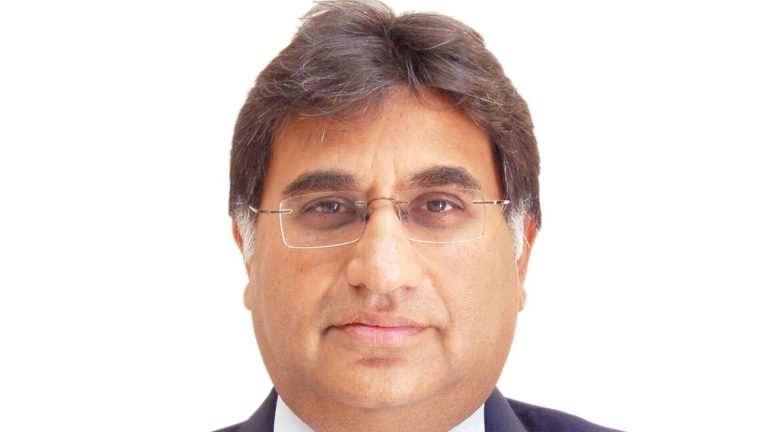The company’s ready-to-eat custard, launched a few years ago, is gathering momentum and is one of its first game-changing products, he said.
“The strategic direction that we are steering our business towards is to go more on the ready-to-eat format because that is what the younger generation prefers,” Malhotra said. “In the next couple of years, we plan to extend the ready-to-eat format to our other desserts, either in Tetra Paks or cups, for products like puddings and jellies.”
The company may turn to acquisitions to expedite growth in the ready-to-eat segment.
“We are looking to acquire brands. That has always been on the anvil and now that we are emboldened with better performance this year, we are more than happy to evaluate good companies that will help us with our growth plans,” Malhotra said.
Room for growth
Market intelligence provider Statista estimates that the ready-to-eat segment is expected to expand at a CAGR of 13.41% to $2.13 billion over the next four years. In November, Fireside and Thinking Forks Consulting said in a joint report that urban consumers are eating more frequently through the day but in controlled portions and opting for cooking aids such as ready-to-eat and ready-to-cook products.
Founded in 1956 by S.P. Malhotra and B.R. Malhotra, Pune-based Weikfield started with the idea of bringing global cuisines to India and introduced custard, cornflour and baking powder. It later diversified to jelly, mustard powder, and drinking chocolate and entered the breakfast segment with oats.
“Weikfield is one of the older brands in the ready-to-eat market and can surely ride the demand growth curve,” said Devangshu Dutta, chief executive of consulting firm Third Eyesight. “It did lose its head-start advantage to more recent entrants that have been more aggressive in investing in marketing and distribution. However, the market is far from being saturated, and growth could come from new product and even new brand launches, and perhaps even inorganically through acquisitions.”
He added that growth in the ready-to-cook and ready-to-eat market is fuelled by changing lifestyles that are boosting convenience-led demand, and the growth of brands and products on the supply side, supported by modern retail channels heightening the visibility of the category.
Weikfield plans to extend its range across its categories with new product offerings and flavours. It operates in five segments – desert mixes such as custard, jelly and faluda, baking products including baking soda, and beverages such as green tea and hot chocolate. It also has a diverse pasta range and condiments including Chinese sauces and ketchup.
Beyond the expansion plans, Weikfield is evaluating a public listing in the next three years, Malhotra said.
“We are looking at the IPO market and based on the valuations, we are looking to go public by 2028. The listing will give us a platform to partly cash out as we have been invested in the company for a long time and it will also enable us to raise funds for the company’s future expansion plans,” Malhotra said.
Weikfield has rebuffed several offers for external funding from private equity firms. However, Malhotra envisages that “there will be a fairly decent amount of funding required for supply chain and marketing” going forward, which it plans to raise through the initial public offering.
“Even for distribution, we will need a different approach because our current distributors are used to long shelf-life products, but the demand is tending towards 30-60-day shelf-life products. That is where we need to reinvent ourselves and will require capital,” he said, adding that the company will fund these plans through internal accruals in the run-up to the IPO.
Consolidating exports
The company has three brands – Weikfield for indulgent and taste-oriented products, Eco Valley for healthy products such as organic green tea, and Chef’s Basket for pasta and other baking items.
It has three manufacturing facilities – two in Pune and one in Himachal Pradesh. One of the Pune factories supplies the southern and western markets, while the Himachal factory caters to the north and east. The other Pune facility manufactures mushrooms.
Weikfield gets about 10% of its over ₹300 crore revenue from exports to the Middle East, Europe, the US, the UK and Africa.
“We now want to consolidate our presence and sell more of our products in select countries rather than spread ourselves too thin across the world. We’d rather just focus on where we are present today and continue expanding our sales there,” Malhotra said.
Unlike companies that posted plummeting sales during the pandemic, Weikfield was among the few that managed to buck the trend as consumers, bound by lockdown restrictions, were indulgent and increasingly turned to baking and cooking.
However, as customers returned to their pre-pandemic lifestyles, Weikfield’s sales declined, and it couldn’t sustain the growth trajectory. During this period, the company spent a significant amount of money on marketing and advertising.
It has since recovered after it focused on profitability and consolidated its presence across geographies and specific products.
Weikfield is poised to benefit from experienced promoters in the field of food processing, an established brand image and distribution network and vast product assortment, Care Ratings said in a report last year.
Quick commerce
Over the past year, the company tied up with quick commerce giants Zepto and Instamart after debuting on Amazon Fresh. E-commerce is one of the company’s fastest-growing channels and it leverages the same distributors for quick commerce to help save costs.
“We have 800 distributors across the country. Wherever these q-com companies have set up dark stores, we have either our distributors or our own depots to service our orders,” Malhotra explained, adding that the company has about 28 depots across India.
The company revenue increased to ₹315.9 crore in FY24 from ₹295.3 crore a year earlier. Its profit narrowed to ₹1.2 crore from ₹2.2 crore, according to data from Tracxn.
The company’s revenue increased by 18-20% in FY25, while profit almost tripled, Malhotra said.


